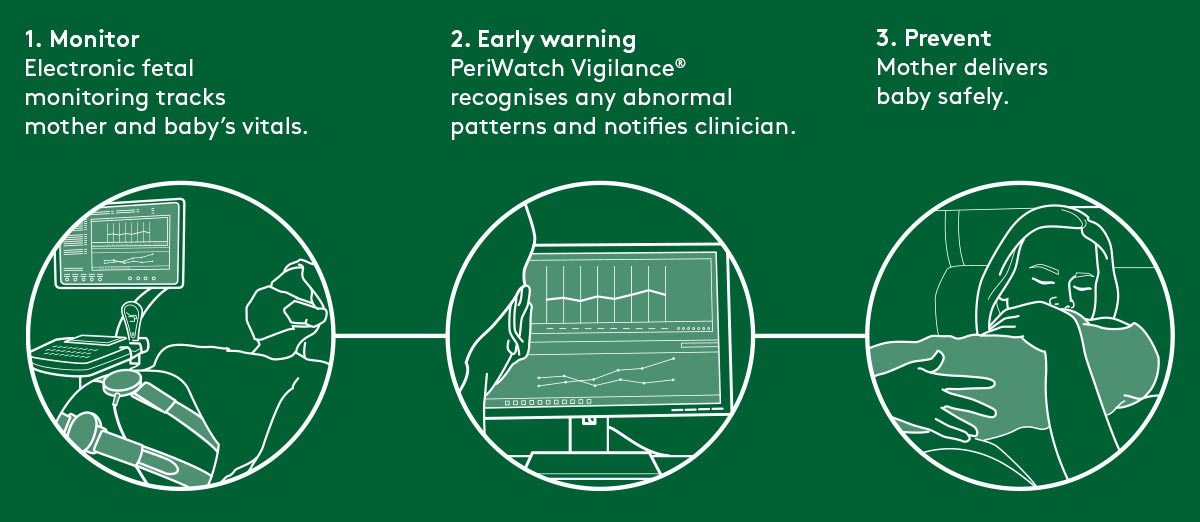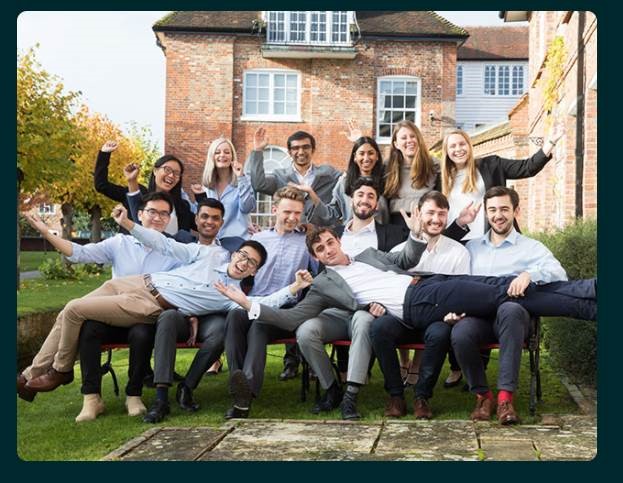Worldwide, about 140 million women give birth every year. Tragically, however, approximately 1 million new-born babies die within the first 24 hours and every day 810 women die from pregnancy- or childbirth-related complications, according to the World Health Organisation. Most maternal and neonatal deaths are avoidable.

During the delivery process, electronic fetal monitoring and other traditional technologies provide raw data. But it is up to clinicians – who may be managing multiple complex births – to make manual calculations before they can interpret the data and recognise those warning signs, many of which can be subtle.
PeriGen provides Artificial Intelligence-based software solutions to enhance the delivery of care during childbirth. Its PeriWatch Vigilance® technology acts as an automated early warning system for both mothers and babies, tracking vital information such as fetal heart rate, contractions, and labour progression. It detects abnormalities during the birthing process and immediately notifies the clinicians in charge about problems, helping to improve timely and appropriate medical interventions.

PeriGen has recently combined its AI technology with a remote monitoring platform which enables clinicians to monitor mothers and babies across multiple facilities from a central location. This remote clinical service helps to bridge the gap in care for large health systems, community hospitals and rural areas, for hundreds of patients at a time, across multiple sites. Ultimately, this will improve the level of care provided to mothers and babies where there isn’t local access to healthcare during birth. A global health initiative led by a prominent US healthcare institution introduced this technology in a regional hospital in central Africa. Over the subsequent six months the rate of babies dying during labour was reduced by more than 80% (from 1 in 253 births to 1 in 4,095 births) with no increase in the caesarean rate.
This is just one example of how a Halma company’s life-saving technology is addressing the rising demands for global healthcare, to grow a healthier future for everyone, every day.


